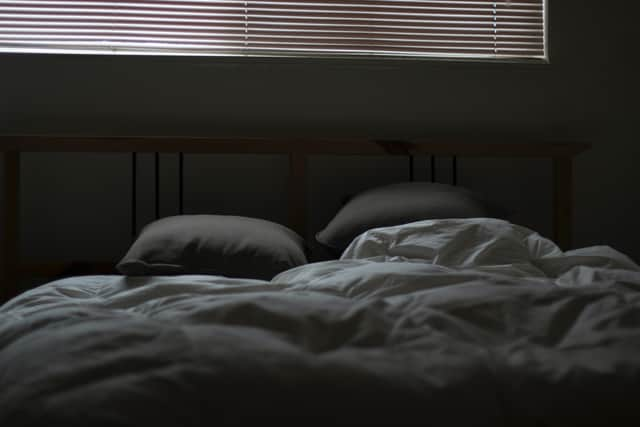UK heatwave: Expert tips for sleeping in hot weather including freezing your pillow case and avoiding exercise
This article contains affiliate links. We may earn a small commission on items purchased through this article, but that does not affect our editorial judgement.
and live on Freeview channel 276
Now the UK heatwave has arrived and the sweltering hot weather is persisting, many Brits are having teething problems whilst trying to sleep in their stuffy sheets. But thankfully, there’s a number of things you can do, other than just ‘buy a fan’, to help improve your sleep hygiene during the heat.
Hayley Thistleton, a sleep expert who works at SleepSeeker, has provided us with eight top tips to make sure you’ve done everything you can to avoid a sweaty night’s sleep. From freezing your pillow to having a warm bath - here’s everything you need to know.
Advertisement
Hide AdAdvertisement
Hide AdHow to sleep in the heat
1. Have a warm bath
Even though it might seem like the opposite of what you should be doing to keep cool, it’s worth taking a warm bath about an hour or two before bedtime as this helps your body temperature to decrease after you leave the bath and your body adapts to the cooler environment.
2. Freeze your pillowcases
For extra cooling, freeze your pillowcases in the evening before getting into bed. Another clever hack is to fill a hot water bottle and leave it in the freezer. You can then use it between the sheets like an ice pack before getting into bed.
3. Avoid exercise before bed
Avoid doing anything strenuous close to bedtime as this can make it harder for the body to cool down during sleep. However, being active during the day can help reduce stress and boost the amount of time you spend in the deeper/restorative stages of sleep, just aim to finish at least 90 minutes before you head to bed.
4. Use a fan or cold compress
A bed fan is best as it provides a more direct flow but any normal fan pointed at your body works well. A simple trick is to place a bowl of ice or bottles of frozen water in front of the fan to cool the air. The most important parts of the body to keep cool while trying to sleep are the head, feet and central body. You can do this by using a wet towel or cloth as a cold compress.
Advertisement
Hide AdAdvertisement
Hide Ad5. Sleep in pyjamas
Wearing pyjamas actually draws sweat away from your body and allows you to keep cooler and more comfortable so it’s worth wearing some loose, thin clothing instead of sleeping naked.


6. Get breathable bedding
Polyester tends to hold heat and is water-resistant, meaning if you sweat due to the heat the sheets could stick against your skin. When it comes to bedding, light-coloured bedding made from natural fibres like cotton and linen offer better breathability.
7. Get the right duvet
Certain duvets and pillows can trap body heat causing you to feel excessively warm. Look out for summer duvets made of hollowfibre, which controls your temperature while you sleep. Of course, low-tog duvets of around 4.5 tog are the best option when trying to keep cool. You can now even get dual tog duvets, which have a cool 4.5 tog side and a warm 10.5 tog side, perfect for those couples where one likes it hot and one likes it cold!
8. Keep curtains and blinds shut
It can be tempting in the heat to keep windows and curtains open all day to let air in, but this could actually cause your home to heat up more. Try keeping curtains and blinds closed throughout the day - once the sun sets and temperatures drop you can open them back up if needed for a cooler breeze.
Comment Guidelines
National World encourages reader discussion on our stories. User feedback, insights and back-and-forth exchanges add a rich layer of context to reporting. Please review our Community Guidelines before commenting.
